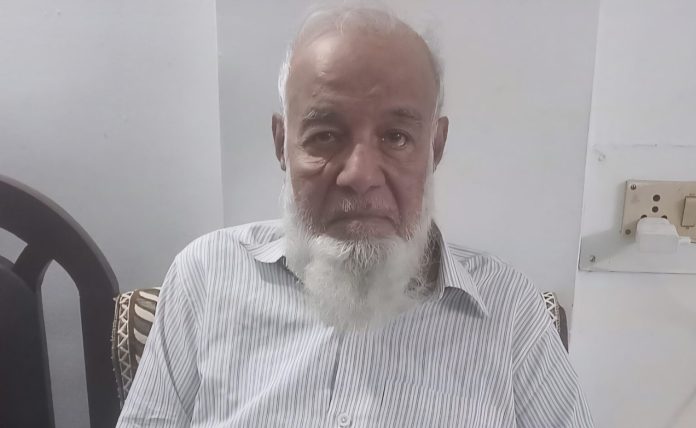Renowned historian, scholar, and educationist Syed Kalim Akhtar passed away last week after a prolonged battle with cancer and other illnesses. He was in his late seventies. His demise has left a profound void in Bhopal’s cultural, intellectual, and educational circles. He is survived by his wife, three daughters, a son, and countless admirers, reported the Clarion India.
Tributes poured in from across the city, with social, educational, and cultural organisations mourning his loss. Jamiat-e-Ulama (Madhya Pradesh Unit), the executive board of Iqbal Library, and others held condolence meetings where his dedication to history, education, and community service was fondly remembered.
Akhtar was known for his in-depth research on Bhopal’s military past during the Nawab era and its role in collaboration with the British during global conflicts. His work drew heavily from Urdu and Persian archival records. He was an active member of the Bhopal History Forum and contributed significantly to preserving the city’s heritage.
A passionate advocate for education, especially within the Muslim community, Kalim Akhtar served as vice-chairman of the historic Iqbal Library (est. 1939) and held the position of Zonal Head – Central India with the Association of Muslim Professionals (AMP) under its NGO Connect program.
His efforts focused on empowering youth through structured, values-based education. He worked relentlessly to establish and support institutions aimed at uplifting underprivileged sections, believing that education was the path to true empowerment.
Remembering him, Mohammad Rehan, Assistant Librarian at the Indira Gandhi Rashtriya Manav Sanghrahlaya, called him a “refined essayist and eloquent speaker,” whose writings were marked by deep research, honesty, and elegant simplicity. “He did not merely write for appreciation; he wrote to awaken,” Rehan remarked.
Akhtar’s humility, accessibility, and affection for the younger generation made him a mentor to many. He was often seen encouraging youth, quietly shaping their moral and intellectual development. His passing is a great loss to Bhopal’s soul — to its educational landscape, cultural ethos, and collective conscience.




